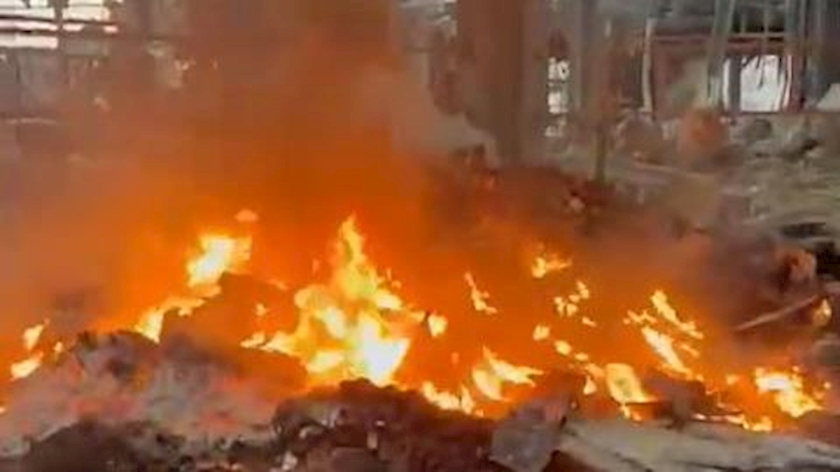Tensions Rise as Israeli Airstrikes Target Iranian Red Crescent’s Field Hospital in Lebanon
In a region historically fraught with conflict, the situation on the border between Lebanon and Syria has once again escalated as Israeli warplanes reportedly targeted a makeshift hospital run by the Iranian Red Crescent Society (IRCS) on Thursday. This attack marks another significant episode in a series of hostilities that have ensued since September 23, affecting large swathes of the Lebanese populace.
Background of the Conflict
Set against a backdrop of enduring geopolitical tension in West Asia, the current hostilities between Israel and Lebanon have historical roots steeped in complex political and territorial disputes. Over the years, this tension has often erupted into violent confrontations, with both sides suffering significant losses. The recent spike in violence began late September with intensified Israeli military activities across Lebanon, which have continued into October.
Humanitarian Efforts Amidst the Turmoil
In response to the ongoing violence and the resulting humanitarian crisis, the IRCS established a field hospital near the Lebanese-Syrian border on October 4. This initiative aimed to address urgent medical needs, offering a 56-bed capacity to assist the injured and displaced Lebanese citizens. Besides medical care, the facility also served as a storage center for critical supplies, including food and medicine.
The IRCS’s efforts underscore the importance of humanitarian organizations during such tumultuous times. With its origins deeply rooted in providing relief during crises, the IRCS plays a crucial role in trying to mitigate the human cost of conflict. This attack on their facility, however, highlights the vulnerability of even the most impartial humanitarian infrastructures in war zones.
Details of the Incident
According to the IRCS, the attack by Israeli warplanes resulted in the destruction of the field hospital and its medical equipment. However, no paramedics were harmed in the incident. Pir Hossein Kolivand, head of the IRCS, condemned the aggression, citing breaches of international humanitarian law, which protects civilian and medical facilities from military attacks. Kolivand further indicated that the IRCS would seek accountability through the International Committee of the Red Cross, urging the international community to denounce these actions.
Broader Impact and Casualties
The attack on the IRCS facility coincided with a separate airstrike in Beirut that same evening, which resulted in the deaths of at least 22 people and injuries to 117. These incidents contribute to the rising toll since the start of the conflict, with over 2,163 lives lost and more than 10,216 individuals wounded. Such numbers paint a stark picture of the humanitarian crisis unfolding in the region.
Conclusion and Calls for Peace
The destruction of a crucial humanitarian installation adds urgency to calls for peace and stability in the region. Amid escalating violence, the need for dialogue and diplomacy to pave the way for long-lasting peace becomes ever more critical. As organizations like the IRCS work to provide relief, the prospect of enduring safety and normalcy remains a hope that rests largely on the international community’s response to this ongoing crisis.
In these challenging times, the stories of those caught in the crossfire serve as poignant reminders of the resilience of human spirit and the profound need for worldwide support in addressing humanitarian needs. The attack on the IRCS field hospital stands as a testament to the dire circumstances faced by many and the indiscriminate nature of modern warfare’s far-reaching impact on civilian lives.
